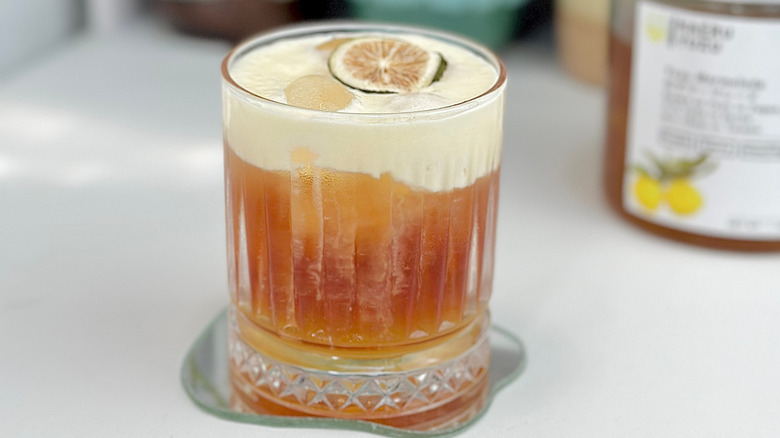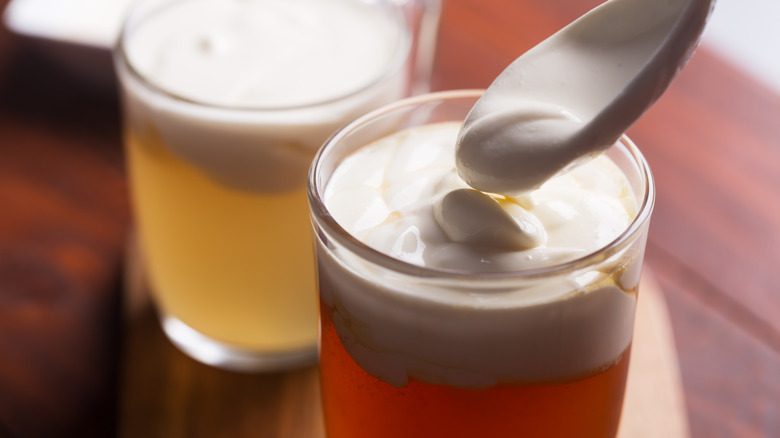The Rise Of Cheese Tea: From Taiwanese Night Markets To Global Menus
Cheese tea — yep, you read that correctly — is a whimsical, delightful beverage. As its name implies, cheese tea does, indeed, contain cheese — but not in the way you may think. The cheese in question isn't sharp cheddar, nutty Parmesan, or stinky Limburger. Cream cheese (which, despite objections, is indeed a real type of cheese made from dairy milk and cream) is the star of the show. The topping for cheese tea is a light, airy mixture of cream cheese, milk, and a hint of salt. The original recipe, however, featured powdered cheese thoroughly blended with whipping cream, resulting in a delicate, foamy surface.
The libation made its debut in Taiwan in 2010, breaking through the vibrant night market scene. Taiwan was already renowned for pioneering boba tea, a sugary, colorful drink adored for its various flavors and chewy tapioca pearls, in the mid-1980s, and the arrival of cheese tea in the early 21st century sparked a new wave of curiosity among tea enthusiasts in East Asia. What started as an innovation in Taiwan quickly spread to China and Malaysia in 2012, finding its place in local teahouses.
As the fame of cheese tea expanded, it transcended borders and reached major international cities. Specialty tea shops in New York, Los Angeles, and London began featuring it on their menus, catering to adventurous consumers eager to explore the latest tastes.
Cheese tea is a uniquely delicious drink
The savory-sweet, frothy cheese topping for cheese tea harmonizes with your tea of choice — whether black, green, oolong, white, herbal, matcha, or whatever your heart desires — to create an exhilarating blend of textures and flavors. To fully relish in the experience, cheese tea is best enjoyed cold and sipped from a cup without a straw, allowing the foam and tea to mingle on the palate for a complex, refreshing sensation. Some cafés and bloggers even experiment with mascarpone, an Italian cheese that differs slightly from traditional cream cheese (the former contains butterfat while the latter calls for heavy cream and whole milk).
Cheese tea's appeal lies in its challenge to traditional tea conventions, introducing a savory element to an otherwise sweet, tangy, or earthy treat, depending on the tea style you opt for. The beverage embodies this spirit of culinary exploration, securing its place as a distinctive and exciting element of contemporary tea culture. Cheese tea may be considered one of the weirdest food trends in history, along with glitter coffee and freeze-dried astronaut food, but it's also undoubtedly one of the most iconic.

